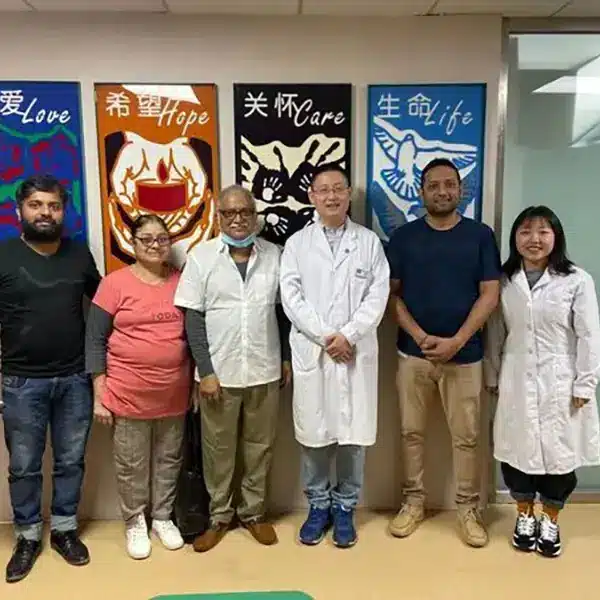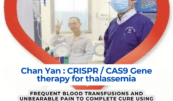Indian went to China for CAR T Cell therapy – Patient story
Susan Hau is a distinguished researcher in the field of cancer cell therapy, with a particular focus on T cell-based approaches and cancer vaccines. Her work spans several innovative treatment modalities, including CAR T-cell therapy, TIL (Tumor-Infiltrating Lymphocyte) therapy, and NK (Natural Killer) cell therapy.
Hau's expertise lies in cancer cell biology, where she has made significant contributions to understanding the complex interactions between immune cells and tumors.
Her research aims to enhance the efficacy of immunotherapies by manipulating the tumor microenvironment and exploring novel ways to activate and direct immune responses against cancer cells.
Throughout her career, Hau has collaborated with leading professors and researchers in the field of cancer treatment, both in the United States and China.
These international experiences have broadened her perspective and contributed to her innovative approach to cancer therapy development.
Hau's work is particularly focused on addressing the challenges of treating advanced and metastatic cancers. She has been involved in clinical trials evaluating the safety and efficacy of various immunotherapy approaches, including the promising Gamma Delta T cell therapy.
- Comments Closed
- January 9th, 2025







Cancer immunotherapy journey, CAR-T success story, CAR-T therapy cost India, CAR-T therapy patient story, CAR-T treatment experience, Indian patient in China, Life-saving cancer treatment, Medical tourism China
With a proven success rate exceeding 90%, we offer cutting-edge, state-of-the-art, cost-effective CAR T-cell therapy for all types of cancer.
Please share your medical records via WhatsApp or email us at info@cancerfax.com to receive a detailed treatment plan and cost estimate.
Chat with Susan to learn more >